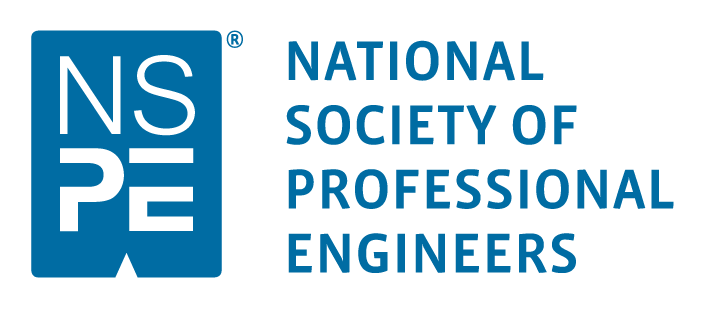Construction Dispute Resolution Services
Robert N Roop, P.E., President of Lockatong Engineering, is now a Certified Arbitrator through Construction Dispute Resolution Services (CDRS) for disputes dealing with construction defects. He is certified to preside over Arbitration, Mediation and other alternative conflict resolution matters.
“Discourage litigation.
Persuade your neighbors to compromise whenever you can.
Point out to them how the nominal winner is often a real loser –
in fees, expenses and waste of time.”
(Abraham Lincoln)
There are several forms of arbitration utilized. In general, arbitration proceedings begin with a pre-hearing or preliminary conference attended by both parties and legal counsel to review the disputed items and ground rules and procedures to be followed during the Arbitration process. As in litigation, there are usually opening and closing statements by attorneys. Testimony may be given and documents submitted. At the end of the process, the Arbitrator will make an award.
A Harris poll found that
- 63% of respondents think Arbitration is simpler than litigation
- 51% think it is cheaper than litigation
- 74% think it is faster
Binding Arbitration involves the presentation of a dispute to an impartial or neutral individual or panel for issuance of a binding decision. It is understood by all parties that they will be bound by the opinion of the Arbitrator, not just obligated to consider that opinion. An Arbitrator’s decision generally has the force of law but does not set a legal precedent and is usually not reviewable by a court.
The decision rendered in a Nonbinding Arbitration is an advisory one only. This method of arbitration is one of the most common means for resolving disputes and has been helpful in labor/management and commercial disputes. Nonbinding Arbitration is typically used when the parties are looking for a quick resolution, would like to have a say in selecting the decision maker, and would like some control over the decision making process that is not possible under more formal methods of adjudication.
A new form of Alternative Dispute Resolution (ADR) is CDRS Mediated Arbitration. CDRS Mediated Arbitration allows the parties to select an Arbitrator and a Mediator. The parties are required to attend an arbitration hearing to present their case on each disputed item. At this point, if the parties desire, the Arbitrator can suspend the hearing and allow the Mediator to try to settle the issues. The Arbitrator cannot attend this mediation. If no settlement is reached, the Arbitration hearing will resume and the parties continue with presenting their case. Again, the parties may wish to mediate or may proceed with the arbitration process. This process continues until all issues have been presented to the Arbitrator. The Arbitrator will then issue an award to reflect all issues at dispute. This form of ADR is useful in construction disputes which usually have multiple definable issues.
Med-Arb, also known as Mediation-Arbitration, begins with the mediation process with a definite time limit determined by the parties. If no agreement is reached, an arbitration-like hearing is held and the presiding party issues a binding decision.
Arbitration is only one form of alternatives to litigation. These days, the majority of disputes are resolved by arbitration, negotiation, mediation and other forms of conflict resolution, rather than by traditional litigation. Other forms of ADR include:
- Negotiation is the most flexible and informal of all ADR processes. It is the most common method for dealing with conflict. Parties, with or without representatives, communicate directly and explore options for agreement.
- Mediation utilizes impartial mediators to help parties engage in negotiation and cooperative problem solving. Mediation is particularly useful in cases with ongoing relationships, non-legal issues and emotional complexity.
- Binding Mediation is less formal than Med-Arb with an impartial third party acting as mediator while the parties attempt to come to a voluntary resolution. If all issues cannot be resolved, mediator helps draft an agreement on the settled issues that both parties sign. The mediator then switches roles and decides remaining issues without an arbitration-like hearing.
- Early Neutral Evaluation is a court-annexed process where a respected neutral, with subject matter expertise, meets with both sides after the close of pleadings but before discovery begins. This process is useful in complex and protracted litigation.
- Summary Jury Trial is another court-annexed process used when long and complex cases are ready for trial. Each side presents a case summary to a jury. The parties receive an advisory decision from the jury and use that as the basis for settlement negotiations facilitated by the judge who presiding over the summary trial.
- Mini-Trial is similar to Summary Jury Trial but is not court- annexed. Each party appoints a representative and those representatives choose a third person to preside over the mini-trial.
- Settlement Facilitation involves an impartial third person who meets with the parties and their lawyers. This facilitator often shuttles offers back and forth between both sides prior to trial, and usually offers suggestions about likely outcomes of the case to aid settlement discussions.
- Special Mastering engages conflict management with a court-appointed referee. With the consent of the parties, the referee may make evidentiary and procedural rulings concerning the litigation process. The referee may also hold hearings and make recommended findings of fact and conclusions of law for the trial court. He/she may also aid settlement discussions with the parties.
- Rent-A-Judge is a process developed in California as s commercial response to a lengthy court docket. Some states permit private parties to hire a decision maker to hear their case.
- Litigation involves a formal trial in a court of record resulting in a binding pubic decision.








